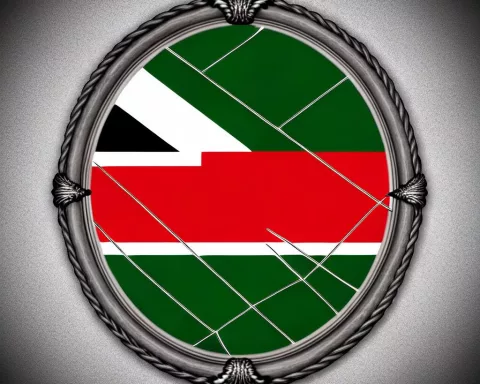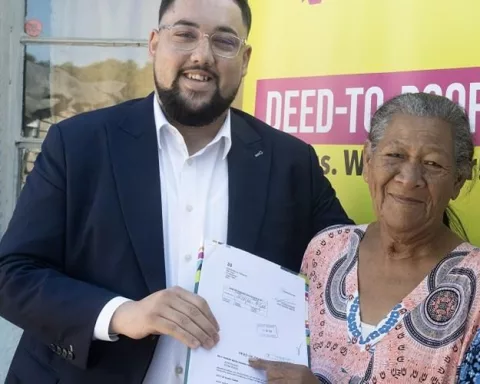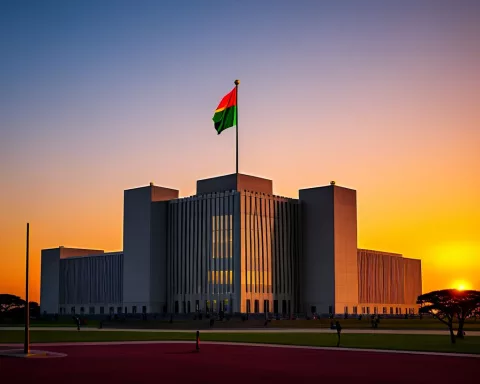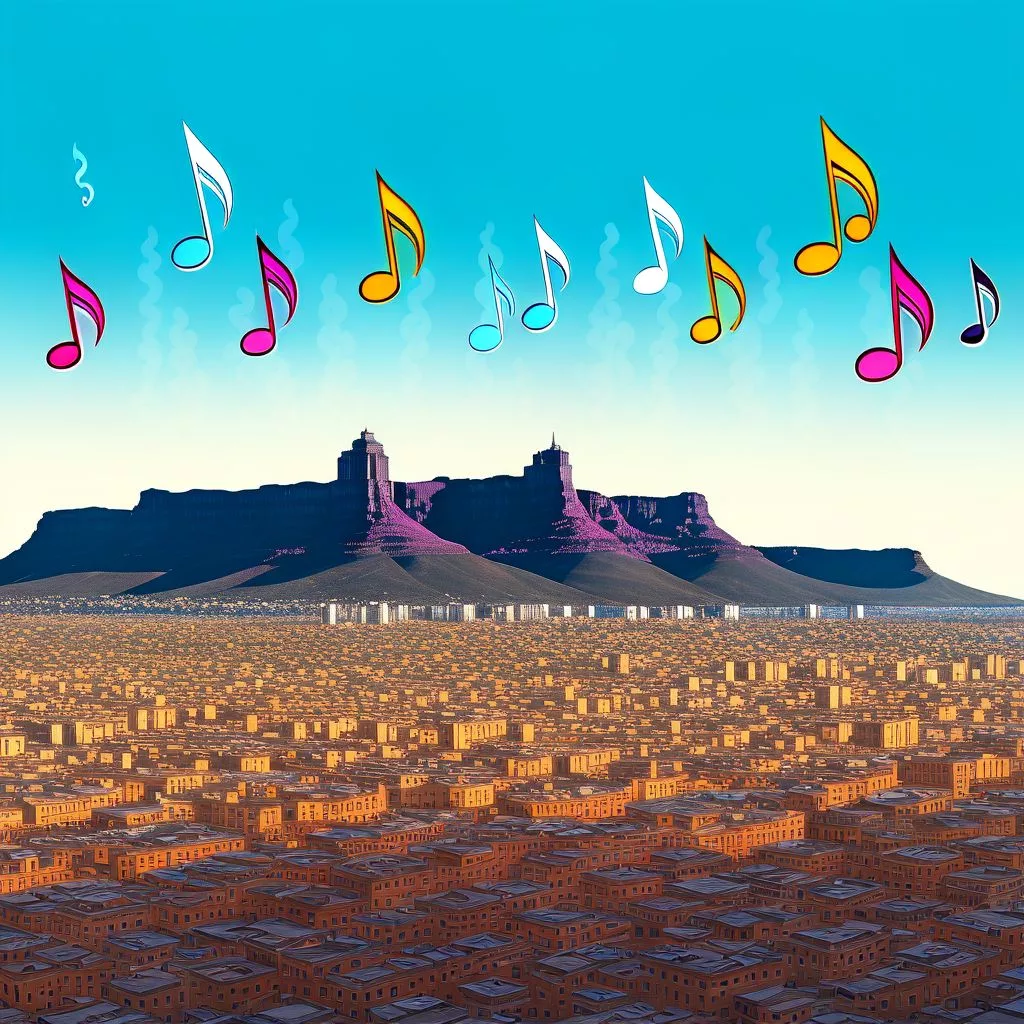In South Africa, a fierce fight is brewing over the Expropriation Act, which lets the government take private land for public use. Supporters believe it’s a way to fix past wrongs, while critics worry it will hurt property rights and jobs. Groups like AfriForum and Solidarity are taking their concerns to the world, asking countries like the U.S. for support, but the Economic Freedom Fighters (EFF) are pushing back hard, claiming this undermines South Africa’s independence. As the nation grapples with its complex history and seeks fairness for all, the debate over land reform continues to stir emotions and raise important questions about the future.
What is the Expropriation Act and why is it controversial in South Africa?
The Expropriation Act allows the South African government to acquire private land for public use. It is controversial because supporters view it as a means to rectify historical injustices, while critics argue it threatens property rights and economic stability, sparking intense national and international debate.
The International Battle Against the Expropriation Act
South Africa stands at a crossroads, embroiled in a heated debate over land reform. At the center of this controversy are two organizations, AfriForum and Solidarity, that have taken their grievances about the Expropriation Act to the international arena. Their campaign seeks to rally support from countries like the United States, igniting fierce opposition from the Economic Freedom Fighters (EFF), a political entity that champions land redistribution and socio-economic justice.
The Expropriation Act is a piece of legislation that permits the South African government to acquire private property for public use or interest. Supporters argue that the Act is crucial in correcting historical injustices by redistributing land to marginalized communities. However, AfriForum and Solidarity, staunch critics of the Act, see it as a threat to property rights and economic stability. Their push for international backing has intensified the already heated discourse surrounding this topic.
AfriForum and Solidarity emerge from the Afrikaner Solidarity Movement, representing the interests of the Afrikaner minority, a group historically tied to South Africa’s complex socio-political landscape. These organizations, including the trade union Solidarity and civil rights group AfriForum, aim to protect Afrikaner cultural and economic interests. This mission is deeply rooted in the historical context of South Africa’s colonial past and the apartheid era.
EFF’s Fierce Opposition and Accusations
The Economic Freedom Fighters (EFF) have responded aggressively to AfriForum and Solidarity’s international lobbying efforts. The EFF accuses these groups of undermining South Africa’s sovereignty by seeking foreign intervention. They argue that such actions betray the nation, as these organizations allegedly pursue foreign assistance to sustain their narrow political interests. The EFF claims that the Afrikaner community, historically privileged, seeks to maintain its advantageous position by obstructing progressive legislation like the Expropriation Act, the Basic Education Laws Amendment (BELA) Act, and the National Health Insurance (NHI) policy.
Julius Malema, the EFF’s outspoken leader, has not held back in his criticism. He argues that the Solidarity Movement’s actions jeopardize South Africa’s stability by spreading misinformation on an international scale. The EFF has even urged the Government of National Unity (GNU) to classify AfriForum and Solidarity as domestic terrorist organizations, suggesting that their activities pose a direct threat to national security. This appeal marks a significant escalation in the political rhetoric surrounding the issue.
Despite the fierce opposition, AfriForum remains steadfast in its opposition to the Expropriation Act. They argue that the Act could lead to economic chaos, potentially resulting in widespread job losses. By reaching out to the United States, AfriForum aims to draw attention to what they perceive as reckless governmental policies, which they claim could endanger thousands of jobs. In their narrative, AfriForum paints itself as a guardian of economic stability, countering the government’s perceived overreach.
Navigating Historical Legacies and Economic Concerns
The Solidarity Movement, while allied with AfriForum, insists that it is not acting on behalf of the government. Instead, it calls for increased political pressure to instigate policy changes that would benefit all South Africans. This position portrays the movement as a proponent of national interests rather than a defender of Afrikaner privilege.
This unfolding drama is deeply entwined with South Africa’s historical challenges. The lingering impact of apartheid, characterized by legally sanctioned racial segregation and discrimination, casts a long shadow. The Afrikaner community, once beneficiaries of apartheid’s policies, now faces the complexities of a democratic South Africa that seeks to address past inequities. Land reform, a cornerstone of the African National Congress’s (ANC) agenda since 1994, remains a divisive issue. While the Expropriation Act aims to rectify historical imbalances, it also raises concerns of economic upheaval reminiscent of Zimbabwe’s land reform crisis.
The United States’ involvement introduces another layer of complexity to the situation. With its own complex history of race relations and land ownership, the US is a significant player on the global stage. Its possible influence on South African policy highlights the interconnectedness of nations in today’s globalized world. The EFF’s criticism of AfriForum and Solidarity’s lobbying efforts in the US reflects concerns over foreign interference and the safeguarding of national sovereignty.
The Broader Implications and Future Considerations
The debate over the Expropriation Act transcends a mere policy discussion, touching on fundamental issues of identity, history, and justice. It encapsulates the broader struggle of a post-apartheid South Africa striving to create a more equitable society while maintaining the delicate balance between redress and economic stability. As the nation navigates these challenges, the actions of organizations like AfriForum and Solidarity, and the responses they provoke, underscore the complexities of a society working to reconcile its past with its future.
Ensuring economic stability while addressing historical injustices is no small feat. The situation calls for careful consideration of both domestic needs and international perceptions. As South Africa charts a path forward, the dialogue around land reform and property rights will undoubtedly continue to evolve, reflecting the ongoing quest for justice and equality in a rapidly changing world. The country’s ability to successfully navigate these challenges will have profound implications for its socio-economic landscape and the broader quest for a just and equitable society.
FAQ: The Tumultuous Terrain of Land Reform in South Africa
What is the Expropriation Act and why is it controversial in South Africa?
The Expropriation Act allows the South African government to acquire private land for public use or interest. It is controversial because supporters view it as a means to rectify historical injustices by redistributing land to marginalized communities, while critics argue it threatens property rights and economic stability, sparking intense national and international debate.
Who are AfriForum and Solidarity, and what is their stance on the Expropriation Act?
AfriForum and Solidarity are organizations that represent the interests of the Afrikaner minority in South Africa. They oppose the Expropriation Act, arguing that it poses a threat to property rights and could lead to economic chaos and job losses. They have taken their concerns to the international arena, seeking support from countries like the United States to challenge the legislation.
How does the Economic Freedom Fighters (EFF) respond to the actions of AfriForum and Solidarity?
The EFF fiercely opposes AfriForum and Solidarity’s international lobbying efforts, accusing them of undermining South Africa’s sovereignty and seeking foreign intervention for their political interests. The EFF claims that these groups are trying to maintain their historically privileged status by obstructing progressive legislation aimed at redistributing land and addressing historical injustices.
What historical context influences the debate over land reform in South Africa?
The debate over land reform is deeply intertwined with South Africa’s apartheid past, which enforced racial segregation and discrimination. The Afrikaner community, historically benefitting from apartheid policies, now faces the complexities of a democratic society striving to rectify past inequities. Land reform has been a central agenda for the African National Congress (ANC) since 1994 and remains a divisive issue in contemporary politics.
What are the potential consequences of the Expropriation Act for South Africa’s economy?
Critics of the Expropriation Act, including AfriForum and Solidarity, argue that its implementation could lead to economic upheaval, including widespread job losses and destabilization of property rights. They warn that the situation could mirror Zimbabwe’s land reform crisis, where similar policies resulted in significant economic decline and social disruption.
How does international involvement play a role in the land reform debate in South Africa?
International involvement adds complexity to the land reform debate, particularly with organizations like AfriForum and Solidarity seeking support from foreign nations, such as the United States. The EFF argues that such actions threaten national sovereignty and reflect attempts by privileged groups to retain their power. This highlights the interconnectedness of global politics and domestic policies in addressing historical injustices and economic challenges.












